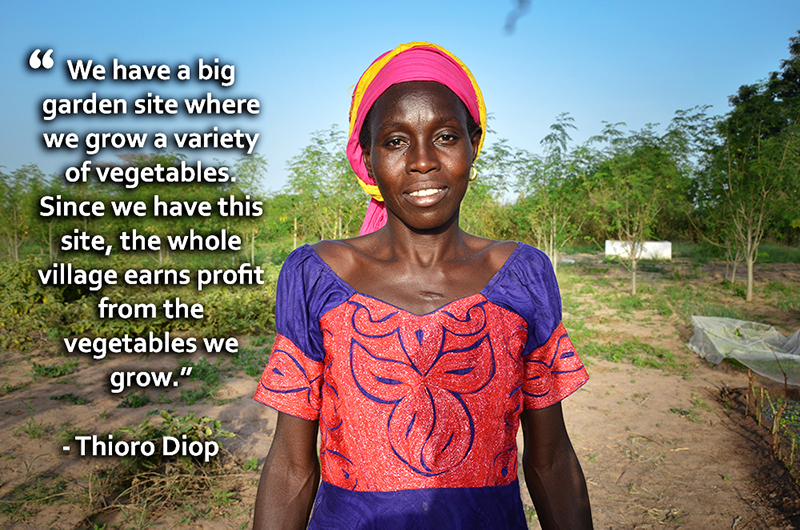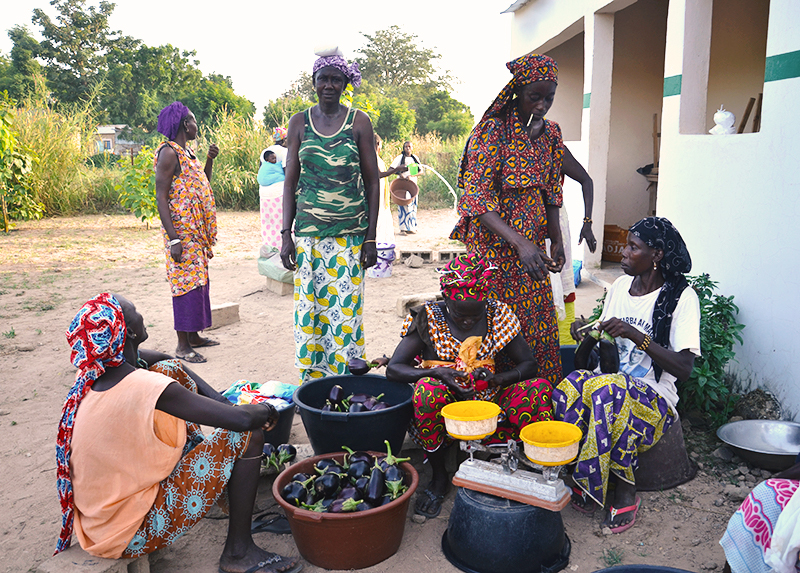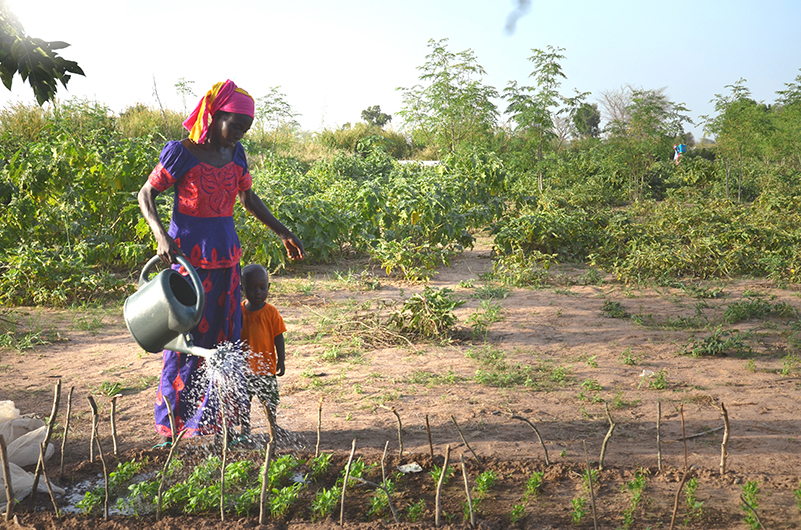As Senegal reaches the peak of its dry season, it’s even more crucial for rural communities to be self-reliant and resilient. Many of these rural villages are based in Senegal’s Peanut Basin. Named for its popular cash crop, many farmers in this area used to rely solely on seasonal peanut harvests and exportation to generate income. Unfortunately, monoculture farming added to the destruction of the soil and left the land barren. Along with combating poor soil conditions, the communities face another environmental difficulty. During this time of year, Harmattan, a dry northeastern wind will blow throughout Senegal. Often referred to as “hot wind”, Harmattan stirs up the sand and dust from the desert. This causes natural disturbances in rural communities during their long dry season.
In this blog, we will learn about Thioro Diop. She is mother of seven who lives in the village Keur Douda in the Peanut Basin, and is no stranger to these harsh living conditions. Thioro and her community are learning the importance of diverse agricultural and how to work with their environment. She tells us, “Vegetable cultivation is not easy in the Peanut Basin. But we always overcome challenges thanks to the technicians help.”
Taking Care of Her Family and the Environment
Thioro and her community have been able to sustain year-round gardens in the desert thanks to the training provided by CREATE!‘s technicians. The community has learned how to grow a variety of crops from eggplants to bananas, tomatoes, lettuce, potatoes, onions, and much more. They are also using cover crops to improve soil conditions and support their main harvest plants. “After graduation, I will be able to manage my own garden site,” Thioro tells us. By moving away from monoculture, Thioro and her community have been improving the soil as well as their own dietary diversity.

A Diverse Diet
Even during the dry season, Thioro and her village are still able to sustain their garden site and generate income in the market. Thioro emphasizes the importance of consistently maintaining a diverse and hearty diet for her family. “Since we have a garden site in the village, my family eats more vegetables and their diet has improved.” In fact, families across Keur Daouda report an improvement in their health since they started growing their own food from the village.
To support her family’s nutritious diet, Thioro cooks meals over her reliable improved cookstove that she built herself. “There is more security in the village since we use the improved cookstove. It is built in a way that it protects the village from fire,” she describes. Even during the Harmattan winds, her improved cookstoves proves to be safer than traditional open cooking fires. This is due to the outer protective walls that enclose the flames.

Women in Keur Daouda organize and weigh their recent eggplant harvest from the community garden site.
Planting for a Diverse Environment
Along with creating more safety in the village, Thioro’s improved cookstove uses less firewood than her previous open fire. “With the improved cookstove, I don’t need to use much wood because only two pieces are enough for cooking a meal,” She tells us. “I no longer need to walk many miles for collecting wood in the forest.”
By using less firewood, Thioro is improving the condition of the environment around her. She is saving trees which provide shade, wind protection, improve soil conditions, and provide food for her community. In fact, when the community first planted the garden site, they planted accacia mellifera and acaccia olo trees around the site’s perimeter. Not only did these trees create a natural barrier from animals but they also protect the garden site during the Harmattan winds.
More recently, Thioro and her community participated in a tree-planting campaign in their village during the rainy season. They planted a wide range of trees with multiple uses such as fruit trees, nut trees, and trees for firewood. “We know the importance of trees,” she explains. “That’s why we try to plant many trees for our children.” With the wide range of trees and crops, the soil condition in Keur Daouda will continue to improve thanks to dedicated community members like Thioro.
As Thioro and other community members learn more about creating self-sufficiency in their village, they also learn how to protect their natural environment. Together, they are able to improve the condition of the land as well as their own livelihoods. “Our condition is improving day by day,” Thioro says.

